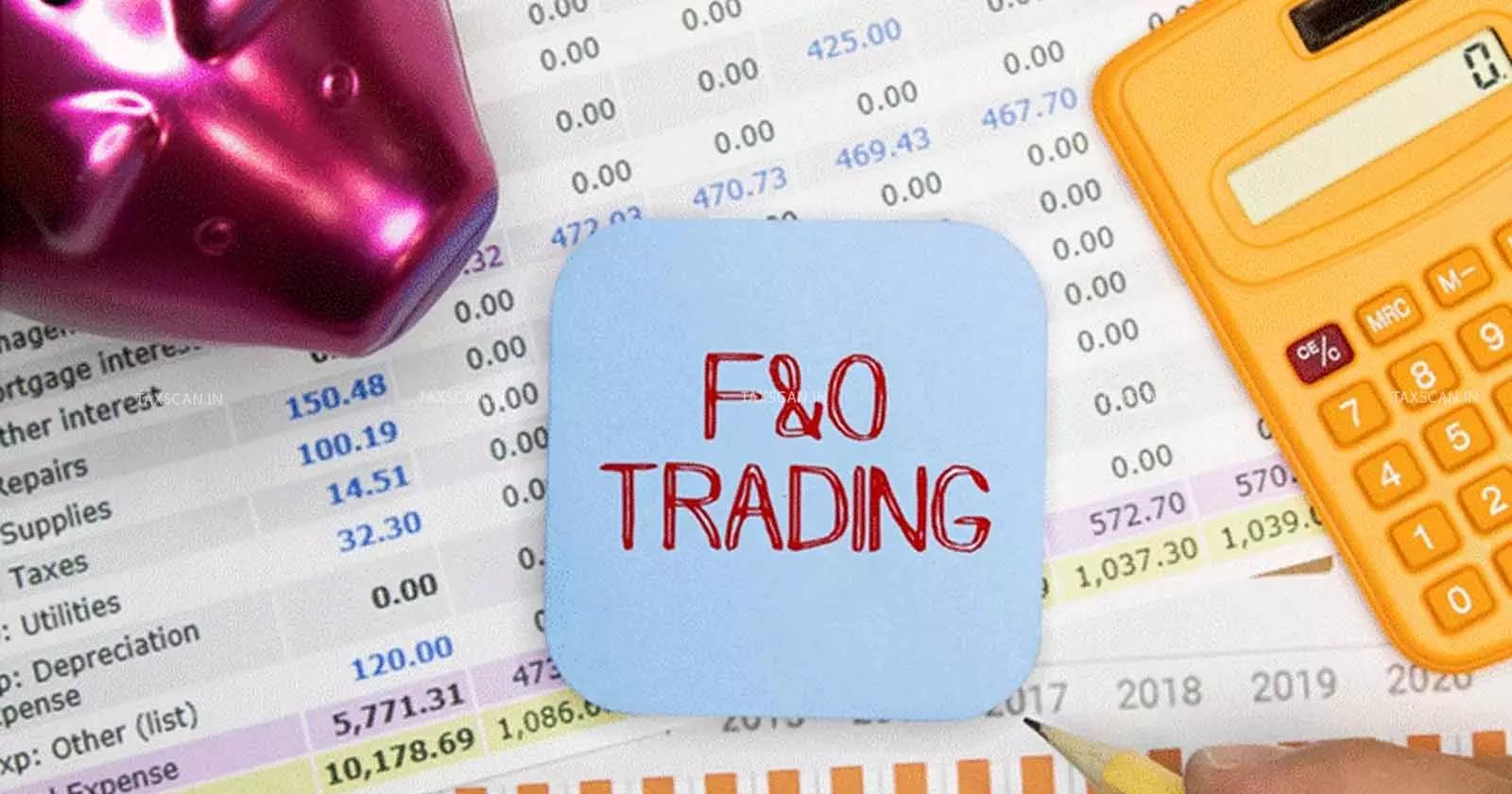F&O Taxation: Know Why Every Trader Must File Losses Even Without Profits
F&O traders must file losses even without profits, as they are treated as business income under tax law, allowing set-offs and carry-forward benefits for up to eight years

When most people think about income tax, they assume it is only relevant if there are profits. After all, if you lost money, what could possibly be taxable? But when it comes to Futures and Options (F&O) trading, this assumption can get you into trouble.
Indian tax law treats F&O trading differently from casual stock investing. Whether you make money or not, if you have traded in derivatives, you are considered to be carrying on a business. And like any business, your profits and your losses must be reported.
Failing to do so can result in penalties, scrutiny from the tax department, and, most importantly, the loss of valuable tax benefits. This article explains why reporting F&O losses is mandatory and how it can actually work to your advantage.
F&O Trading Is Business Income, Not Speculation
Under Section 43(5) of the Income Tax Act, 1961, F&O transactions are classified as non-speculative business income. This makes them very different from intraday equity trading, which is considered speculative, and from long-term investing, where gains are treated as capital gains.
What this means is simple: F&O activity is always treated as a business, regardless of your frequency of trading, the volume of transactions, or whether trading is your full-time occupation. This applies equally to profits and to losses.
Why Losses Must Be Reported
If you only made losses in F&O, it might feel pointless to file a return. But the law requires you to do so, and the benefits of compliance are significant.
- Legal requirement: Since it is classified as business income, you are obligated to disclose all F&O transactions. Skipping this can attract notices because brokers already report trades in your Form 26AS/AIS.
- Set-off benefits: F&O losses can be adjusted against most other income heads. You can set them off against profits from business, house property income, or interest income, though not against salary.
- Carry forward of losses: If you cannot use the loss this year, you can carry it forward for up to eight assessment years. These carried-forward losses can be adjusted only against future business income. But this benefit is available only if you file your return on time.
Skipping the return means losing these opportunities permanently.
A Simple Illustration
Suppose a trader has:
- Salary income: Rs. 15,00,000
- Rental income: Rs. 3,50,000
- Interest income: Rs. 80,000
- F&O loss: Rs. 4,35,400
If the F&O loss is not reported, the taxable income is Rs. 19,30,000. If reported and adjusted, the taxable income reduces to about Rs. 15,00,000. That difference directly lowers the tax bill.
What Happens If You Don’t File
Non-reporting comes with risks:
- Notices: Since brokers share transaction data with the tax department, missing F&O trades in your ITR is easily flagged.
- Penalties: Failure to maintain books of accounts can attract a penalty of Rs. 25,000 under Section 271A. If you miss audit requirements, the penalty can be up to Rs. 1.5 lakh or 0.5% of turnover under Section 271B.
- Loss of carry forward rights: Once the deadline passes, unreported losses cannot be carried forward, even if you file later.
Filing Process: What You Need to Know
F&O traders must use ITR-3, which is designed for those with business or professional income. In this form, you need to:
- Report income in Schedule BP as non-speculative business income.
- Declare carried-forward losses in Schedule CFL.
- Use the correct business code (14013 for F&O).
- Calculate turnover based on the ICAI guidance: the absolute sum of profits and losses, plus option premiums received.
If your turnover exceeds Rs. 10 crore, a tax audit is mandatory. For smaller turnovers, audit rules depend on profit levels and whether at least 95% of transactions are digital.
Expenses You Can Claim
Because F&O is business income, you can deduct related expenses to reduce taxable profits. These include:
- Brokerage, GST on brokerage, and exchange charges.
- Securities Transaction Tax (STT), stamp duty, and clearing fees.
- Internet, mobile, and software costs used for trading.
- Office rent, electricity, and depreciation on equipment.
- Professional fees paid to accountants or advisors.
Proper record-keeping is crucial. You should preserve contract notes, bank statements, and invoices to support your claims.
Why Presumptive Taxation is Unsuitable
Some traders consider using Section 44AD presumptive taxation, which allows declaring income as 6-8% of turnover. While this simplifies filing, it is risky for F&O traders:
- Losses cannot be shown or carried forward.
- It may trigger scrutiny, since F&O trading is not a typical small business.
Experts generally advise against using this route for derivatives trading.
Deadlines and Compliance
The deadline for filing depends on whether you require a tax audit:
- Without audit: July 31
- With audit: October 31
Missing these dates means you lose the ability to carry forward losses, even if you later declare them.
SEBI studies reveal that between FY22 and FY24, over 93% of retail F&O traders lost money, with aggregate losses exceeding Rs. 1.8 lakh crore. With so many individuals facing losses, the ability to use tax rules wisely becomes even more important.
Reporting losses is not just about compliance. It is about turning setbacks into opportunities. By filing correctly, you reduce your tax today and preserve benefits for the future.
Conclusion
In the world of F&O trading, losses are more common than profits. But losses are not useless. They can lower your tax bill, they can be carried forward, and they can save you money in years to come. The catch is that you must file them on time and in the right way.
Support our journalism by subscribing to Taxscan premium. Follow us on Telegram for quick updates


